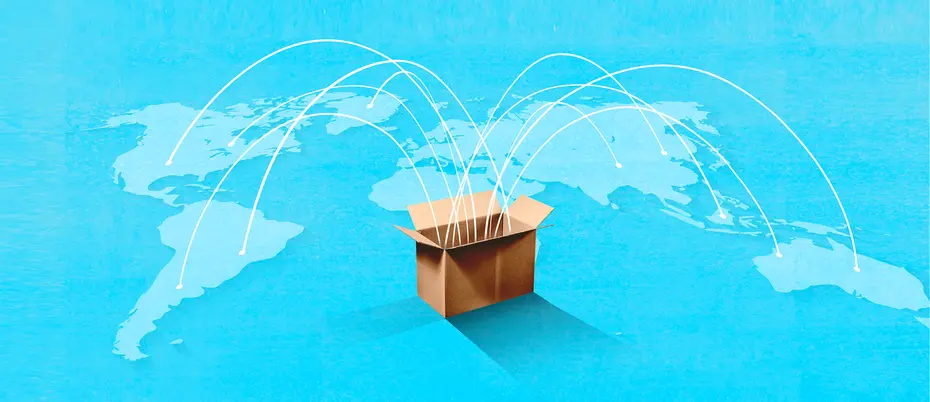Supply Chain
Supply chain visibility boosts consumer trust, and even sales
Investing in supply chain transparency can be costly. But companies making the investment earn points with consumers, and even higher sales from socially conscious or skeptical buyers.
Global supply chains are complex. Transforming raw materials into completed goods often requires a multitude of workers crossing different countries and cultures. Companies undertaking efforts to learn more about their supply chain often face a significant investment of time and resources.
Those costs are worth it, according to a new study by MIT Sloan professor and visiting assistant professor along with León Valdés, an assistant professor at the University of Pittsburgh.
The researchers found that investing in supply chain visibility is a surefire way for companies to gain consumer trust and can even lead to increased sales from certain customers.
“Increasing supply chain visibility always strengthens consumer trust,” the researchers write. “Furthermore, opportunities exist for a trust-driven revenue benefit due to greater visibility.”
Common elements of supply chain visibility include tracing parts or products along every step of the manufacturing process, from raw materials all the way to the final product being delivered to the consumer, and finding out more about factors including working conditions and environmental impact.
Zheng, Kraft, and Valdés arrived at this conclusion after conducting a study with 467 participants at two U.S. universities. The participants played a game with three roles that mimicked a supply chain: a consumer, a seller, and a disadvantaged worker. Within the game the seller had to decide how much to invest in supply chain visibility, and whether to communicate that information to the buyer, truthfully or not. Consumers then had to decide whether or not they believed the seller and whether to buy the product. The decisions were monetarily incentivized.
The researchers also ran control tasks that gauged the participants’ levels of risk preference, trust beliefs, and prosociality — willingness to sacrifice something to one’s own benefit to increase another person’s payoff.
Here are the key takeaways.
Supply chain visibility is a surefire way to gain trust
Consumers are caring more about a company’s social responsibility. According to a recent poll referenced by the researchers, 75% of respondents considered transparency helpful in strengthening trust between businesses and consumers. But few companies invest in learning more about supply chain visibility, which allows for transparency with consumers. According to another poll cited by researchers, 81% of 1,700 companies surveyed did not have full visibility into their supply chains, and 54% had no visibility at all.
Researchers said that in all versions of their experiment and no matter the player’s prosociality or other preferences, improving visibility increased consumer trust in a company’s communication about social responsibility.
Even though transparency is expensive, risky, and time-consuming, the study found, investing in supply chain visibility is an important tool to strengthen consumer trust. “At a time when customers are becoming savvier — and more skeptical — about social responsibility, our findings show that the investment can be worthwhile as it always engenders consumer trust,” Kraft said.
Consumer trust goes up even more as the economic status of workers in the supply chain decreases. “For companies that source from suppliers in developing countries where workers live in potentially poor economic conditions, there is an even stronger potential benefit from investing to improve supply chain visibility,” according to the researchers.
More visibility means more sales from some consumers
Increased consumer trust has its own benefits, including increased customer loyalty and brand recognition. Researchers found that among some consumers more trust also leads to increased sales.
It depends on the company’s consumers. Supply chain visibility matters most to consumers who value philanthropy and are empathetic to others’ well-being and to those who tend to be naturally skeptical. In those cases, sharing information about the supply chain overcomes consumers’ inherent lack of trust or makes prosocial customers feel like they are patronizing a socially responsible company.
Even small social responsibility initiatives make a difference
Taking even small actions based on increased supply chain visibility can pay off, according to the study.
percent of companies surveyed had no visibility into their supply chain.
Initiatives based on great visibility that offer even a small impact, like slightly increasing pay for workers, are likely to boost trust-driven sales. “This is because investing in visibility mitigates skepticism and prevents consumers from punishing the company (i.e., not purchasing the product) due to the small impact of the [social responsibility] initiative,” the researchers write.
“Customers want to know more about where and how the products they purchase are made,” Zheng said. “And even small investments in supply chain visibility can make a big difference for a company.”




